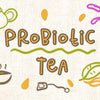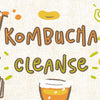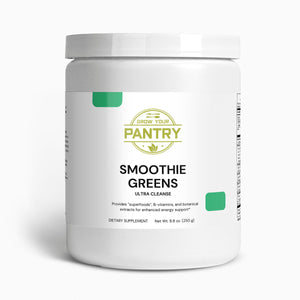Kombucha, Pregnancy And Breastfeeding: Yay Or Nay?
Raw and pasteurized kombucha tea are not recommended for pregnant or breastfeeding mothers. The cause for these health concerns arises from the fact that kombucha contains some substances that may cause harm to an unborn fetus or breastfeeding infants. These include alcohol, caffeine, and opportunistic bacteria in the culture.
To understand the impact of these substances, we have to delve into the intricate details of each of them. We will look at their health benefits as well as the potential risks they pose during pregnancy and breastfeeding.
Not Much Time? Skip To What You'd Like To Learn...
- Considerations When Pregnant and Breastfeeding:
1. Caffeine
2. Alcohol
3. Probiotics
4. Pasteurization
- FAQs
- Final Conclusion
Considerations When Pregnant and Breastfeeding
1. Caffeine

Caffeine is a naturally occurring stimulant that’s found in several plants, including tea leaves and coffee. In kombucha, caffeine is introduced during the process of steeping the tea leaves. As a result, various kombucha brews will have differing amounts of caffeine, depending on the variety of tea leaves used.
When consumed, caffeine increases mental alertness; this is achieved by fooling the adenosine receptors, thus blocking the nerve cells from slowing down. This also causes the vessels supplying blood to the nerve tissues to dilate, thus increasing the oxygen supply. As caffeine increases the neuron activity, the pituitary gland senses the increased alertness thinking it is a result of an emergency. The pituitary gland secretes adrenaline whenever you experience this spike in alertness (link).
Adrenaline is also known as the fight or flight hormone. Its presence automatically triggers the opening up of the airway, increased heartbeat, dilation of the pupils, and an increase in blood pressure.
Safe Levels Of Caffeine For Pregnant and Breastfeeding Women
(link)
Currently, WHO guidelines limit the amount of caffeine to consume while pregnant to 300 mg per day, the UK recommends an even stricter 200 mg per day limit.
According to a 2008 research on the effects of consuming caffeine while pregnant, increased caffeine is directly correlated to increased cases of fetal growth restriction and decreased birth weight. Additional evidence also suggests that caffeine increases the likelihood of pregnancy loss as well as childhood obesity (link).
Amount Of Caffeine In Kombucha
The amount will depend on the initial amount in the tea leaves used to brew. During the fermentation process, the culture usually feeds on about 50% of the caffeine.
Type Of Tea Leaves |
Caffeine Before Fermentation Per 8oz |
Caffeine In Kombucha After Fermentation Per 8oz |
Green Tea |
35-45mg |
17-22mg |
Black Tea |
40-70mg |
20-35mg |
White Tea |
15-30mg |
7.5-15mg |
Oolong Tea |
37-55mg |
18-27mg |
Rooibos Tea |
0mg |
0mg |
Type Of Beverage |
Caffeine Per 8oz Drink |
Brewed Black Coffee |
95-165mg |
Brewed Decaf Coffee |
2-5mg |
Ice Tea |
5-40mg |
Espresso |
376-512mg |
Alcohol |
0.5%-1% |
Root Beer |
0mg |
Instant Coffee |
63mg |
Latte |
63-126mg |
Energy Drink |
27-164mg |
Brewed Black Tea |
25-48mg |
Brewed Black Decaf |
2-5mg |
Cola |
24-26mg |
Brewed Green Tea |
25-29mg |
(link)
Kombucha Brand |
Caffeine Per 8oz Serving |
KOE Organic Sparkling Mango Kombucha |
15mg |
Unity Vibration Cold Brew Coffee Kombucha |
86mg |
Rise Kombucha |
2-8mg |
Brew Dr. Kombucha Clear Mind |
15mg |
Kevita Master Brew Kombucha |
76mg |
Risks:
Low Birth Weight
Current studies on the effects of caffeine during pregnancy have shown inconsistent results when it comes to the risk of low birth weight. The study found that pregnant women have a significantly slower caffeine metabolism rate. As a result, caffeine consumed during pregnancy remains in the blood circulation for much longer, making it possible for the caffeine molecules to cross over via the placenta and into the fetus’s plasma.
A recent study on the effects of caffeine on fetus health found that an increment of 100 mg caffeine intake per day leads to a 7% increase in the probability of low birth weight (link).
Risk Of Miscarriage
The research division at Kaiser Permanente, Oakland, published their latest findings, which showed there was a direct correlation between the amount of caffeine consumed during pregnancy and the risk of miscarriage.
The results of the study demonstrated that increasing the amount of caffeine consumed during pregnancy led to an increased risk of miscarriage irrespective of the changes in intake pattern (link).
Infant Sleeping Issues, Anxiety, and Restlessness
A recent study on the effects of caffeine consumption while breastfeeding found that at least 1% of the caffeine consumed gets transferred to breast milk. It’s important to note that babies cannot metabolize caffeine as fast as adults, what should take only 7 hours in an adult takes up to 130 hours. This may lead to infant sleeping issues, restlessness, and anxiety for prolonged periods (link).
Conclusion
While the risks associated with caffeine consumption are all too real, small amounts (sub 200-300 mg) are considered to be safe.
2. Alcohol

Alcohol is an organic compound that has a depressant effect on our brains, thus causing euphoria, improved sociability, and reduced anxiety. In kombucha, alcohol happens to be one of the byproducts of the breakdown of sugar by the yeast culture. While home-brewed kombucha and regular store-bought has a lower alcoholic content of about 0.5-1.5%, bottled hard kombucha varieties have a higher alcoholic content of up to 6% in some cases.
Safe Levels Of Alcohol For Pregnant and Breastfeeding Women
The chief medical officers recommend that there is no safe limit of alcohol when pregnant, breastfeeding, or planning on getting pregnant. All this arises from the fact that alcohol does pose some considerable health risks to the baby (link).
Amount Of Alcohol In Kombucha
The amounts of alcohol in kombucha varies depending on the brewing setup and the length of the fermentation. A prolonged brewing time allows the bacteria culture to breakdown most of the alcohol produced by the yeast culture.
Kombucha Brand |
Alcohol Content Per 8oz Serving |
Raw, Home-brewed Kombucha |
0.5-1.5% |
GT's Synergy Kombucha |
0.5-1% |
Suja Kombucha |
Less than 0.5% |
Kyla Kombucha |
4.5% |
Juneshine Kombucha |
6% |
Blueridge Kombucha |
0.1% |
Dr. Hops Kombucha |
6% |
Beverage Variety |
Alcohol Content |
Home-brewed Jun Tea |
2% |
Home-brewed Cow Milk Kefir |
2.5% |
Beer |
4.5-7% |
Wine |
11.6% |
Liquor |
37% |
Risks:
Foetal Alcohol Syndrome (FAS)
FAS refers to severe physical and mental problems that afflict a baby due to the excessive consumption of alcohol by the mother during pregnancy. The alcohol from her bloodstream passes through the placenta to the unborn baby.
The liver is one of the last organs to mature, and such exposure to alcohol during development can damage the liver cells as well as other critical body organs such as brain cells and spinal cord nervous network. This is exhibited in the form of having a smaller than average head, poor physical growth, distinctive facial features, learning difficulties, mood and attention disorders, liver and kidney problems, and hearing as well as vision problems (link).
Risk Of Preterm Delivery
Long term medical research has shown that the consumption of alcohol during pregnancy significantly increases the probability of preterm delivery. Mothers are advised to avoid alcohol altogether (link).
Low Birthweight
Consumption of alcohol while pregnant results in delayed growth rate, which eventually results in low birth weight. Low birth weight babies are more likely to have weakened immune systems and stunted growth all through their childhood (link).
Conclusion
The majority of countries strongly advise avoiding alcohol during breastfeeding and while pregnant. There is said to be no safe limit. The risk of developing fetal alcohol spectrum disorder increases significantly with increased alcohol consumption. To avoid such complications, expectant and breastfeeding mothers are advised to stay away from alcohol.
3. Probiotics

Probiotics are live yeast and bacteria cells found in fermented drinks, in this case, kombucha. The culture is introduced to the freshly brewed tea using a kombucha SCOBY and starter tea from a previous batch. During the fermentation stage, the culture grows exponentially as it feeds on the sweetened tea. Because the probiotics found in kombucha primarily comprise of live bacteria there arises the question:
Are Probiotics Safe To Consume When Pregnant or Nursing?
Research shows that the consumption of probiotics in the form of fermented foods are rarely absorbed systemically in healthy mothers and can, therefore, not cross over to the unborn child. Therefore, drinking probiotics will only serve to benefit the mother with good bacteria providing a healthy gut balance (link).
Conclusion
The presence of probiotics in kombucha does not pose any health risk to the unborn baby nor breastfeeding ones. As a result, pregnant women can enjoy probiotic-rich foods.
4. Pasteurization

Pasteurization is the process of heat treating foods under high pressure with mild heat less than 100 degrees C (212 degrees F). This eliminates pathogens that might be in the food, thus extending its shelf life.
Is Kombucha Pasteurized?
Kombucha can be classified as either raw or pasteurized. Raw or unpasteurized kombucha has not been pasteurized and retains the natural balance of bacteria and yeast cultures. Home-brewed kombucha is usually consumed raw.
Pasteurized kombucha has been heat treated, which kills the culture. Companies that pasteurize their kombucha usually add probiotics afterward, although this process can not restore the previous natural balance. Thus pasteurized kombucha lacks the health benefits accrued to raw kombucha.
Are Pregnant Women Allowed To Drink Unpasteurized Food?
Since pregnancy does affect the immune system, there’s a high likelihood that pregnant women will have a weaker immune system, which can cause optimist bacteria and infectious germs in unpasteurized food to cause infection.
Risks:
Contamination With Harmful Bacteria
Unpasteurized drinks may contain harmful bacteria such as E. coli, and salmonella as well as cryptosporidium parasites. These disease-causing microorganisms can be quite life-threatening.
Conclusion
Kombucha is best consumed raw instead of pasteurized, and pregnant women are advised to avoid unpasteurized foods due to their weakened immune systems. This combination of factors means that pregnant women should avoid drinking kombucha as there’s no safe way of drinking it while still retaining its probiotic count.
FAQs

I drank kombucha while pregnant, what should I do?
It’s advisable to check in with your doctor and in the meantime, keep hydrated and track of the amount of caffeine consumed to avoid overconsumption.
I drank kombucha while nursing, what should I do?
To avoid any possibility of alcohol ending up in the breast milk, ensure that you wait for up to 2 hours as that’s around the average time it takes for the liver to get rid of 1 unit of alcohol. This is because kombucha can contain alcohol. If in any doubt about the percentage of alcohol, contact a medical professional.
Are fermented foods safe during pregnancy?
Fermented foods usually have an acidic environment that prevents harmful bacteria from surviving in fermented foods.
Final Conclusion

If you have never consumed before, we do not recommend starting during pregnancy or breastfeeding. We recommend avoiding kombucha during pregnancy and breastfeeding.







